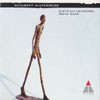Schubert Die Winterreise
Henschel’s fine understanding of the Lieder idiom makes for a Winterreise that stands comparison with the best, though it is let down by an insufficient conveyance of grief
View record and artist detailsRecord and Artist Details
Composer or Director: Franz Schubert
Label: Teldec (Warner Classics)
Magazine Review Date: 11/2000
Media Format: CD or Download
Media Runtime: 71
Mastering:
DDD
Catalogue Number: 8573-82273-2

Tracks:
| Composition | Artist Credit |
|---|---|
| Winterreise |
Franz Schubert, Composer
Dietrich Henschel, Baritone Franz Schubert, Composer Irwin Gage, Piano |
Author: Alan Blyth
In the interview on page 15 Henschel tells us that as a youth he was for a while a tenor, and the timbre of his voice remains tenorish, an asset in Schubert where his plangent tone is in many ways ideal for this cycle. Throughout this thoughtful account of the much-recorded cycle, he sings in immaculate style – exemplary in colouring of the tone, pure line and keen word-painting – all the Lieder verities obeyed.
He also touches in his talk with George Hall on the all-pervading influence of Fischer-Dieskau, and one can hear why critics have found affinities in their style. There is also a likeness with Andreas Schmidt, another baritone once compared with the master. Indeed, the readings of this cycle by Henschel and Schmidt (DG, 3/92 – nla) have many similarities, and each has a drawback in partially lacking a sense, essential in this work, of the protagonist going through an emotion-shattering experience that informs the truly inspired performances listed above. Maybe in the staged version of the work he recently performed in Nancy, Henschel was able to communicate more of the needed Schmerz: here it is missing much of the time, often in speeds that seem too fast and strict (the first and tenth songs, for instance).
Irwin Gage’s playing is always pointed, sometimes just a shade keen on drawing attention to itself as in the over-pointing in the 11th (‘Spring Dream’) and 15th (‘The Raven’) songs where it sounds merely pedantic. As a whole, this experience, though always worth lending an ear to, doesn’t present a definitive replacement to what has gone before, most notably – among baritones – Hotter with Moore, Quasthoff with Spencer (my favourite among recent low-voice versions for its searingly pessimistic feelings), and Fischer-Dieskau with both Demus and Barenboim, the latter reissued at mid price. That said, Henschel is at least there competing in that league.'
He also touches in his talk with George Hall on the all-pervading influence of Fischer-Dieskau, and one can hear why critics have found affinities in their style. There is also a likeness with Andreas Schmidt, another baritone once compared with the master. Indeed, the readings of this cycle by Henschel and Schmidt (DG, 3/92 – nla) have many similarities, and each has a drawback in partially lacking a sense, essential in this work, of the protagonist going through an emotion-shattering experience that informs the truly inspired performances listed above. Maybe in the staged version of the work he recently performed in Nancy, Henschel was able to communicate more of the needed Schmerz: here it is missing much of the time, often in speeds that seem too fast and strict (the first and tenth songs, for instance).
Irwin Gage’s playing is always pointed, sometimes just a shade keen on drawing attention to itself as in the over-pointing in the 11th (‘Spring Dream’) and 15th (‘The Raven’) songs where it sounds merely pedantic. As a whole, this experience, though always worth lending an ear to, doesn’t present a definitive replacement to what has gone before, most notably – among baritones – Hotter with Moore, Quasthoff with Spencer (my favourite among recent low-voice versions for its searingly pessimistic feelings), and Fischer-Dieskau with both Demus and Barenboim, the latter reissued at mid price. That said, Henschel is at least there competing in that league.'
Discover the world's largest classical music catalogue with Presto Music.

Gramophone Digital Club
- Digital Edition
- Digital Archive
- Reviews Database
- Full website access
From £8.75 / month
Subscribe
Gramophone Full Club
- Print Edition
- Digital Edition
- Digital Archive
- Reviews Database
- Full website access
From £11.00 / month
Subscribe
If you are a library, university or other organisation that would be interested in an institutional subscription to Gramophone please click here for further information.




